Sitting Courtside With Matthew Salesses
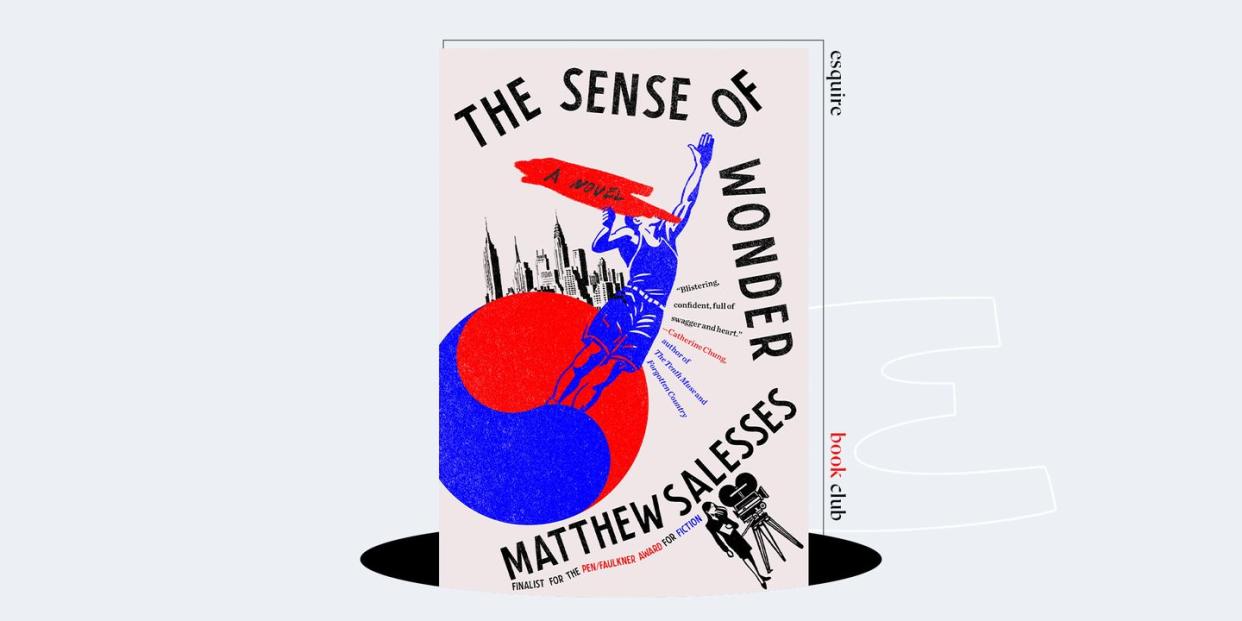
- Oops!Something went wrong.Please try again later.
- Oops!Something went wrong.Please try again later.
"Hearst Magazines and Yahoo may earn commission or revenue on some items through these links."
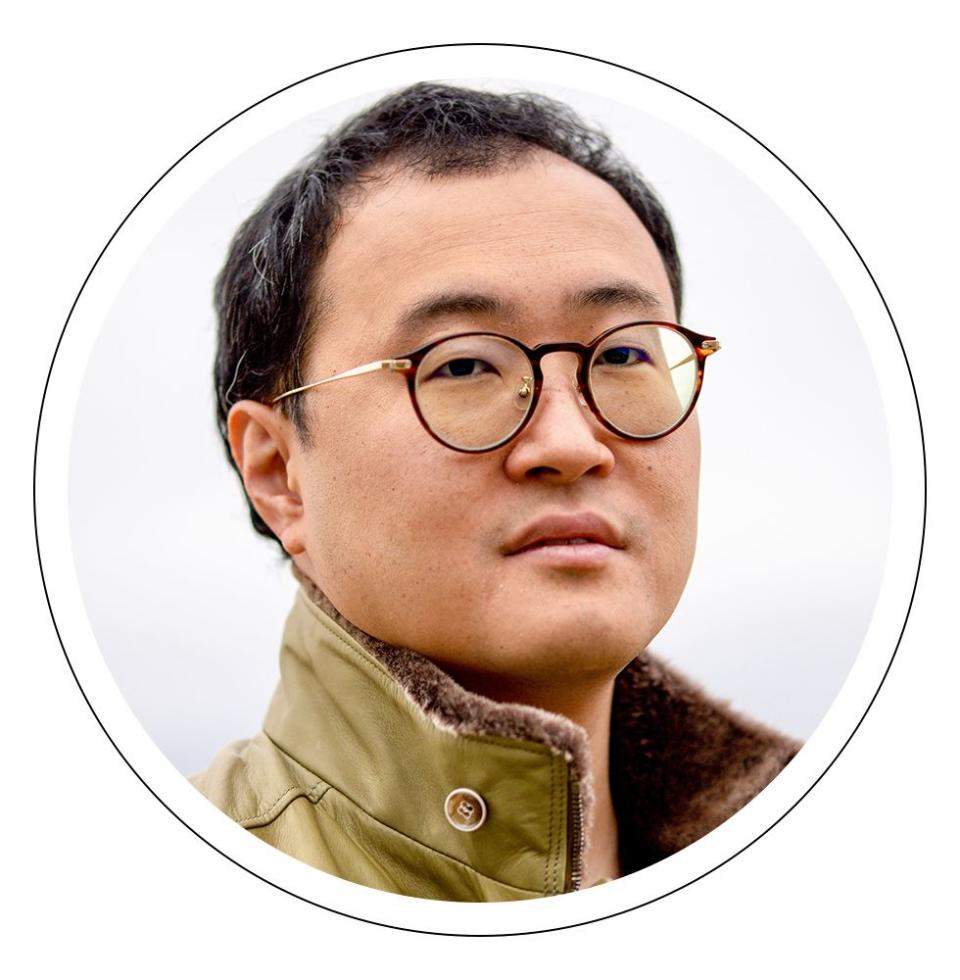
“What a person does with his life is about what he is led to believe is possible,” Matthew Salesses writes in The Sense of Wonder. For a novel centered on two Asian Americans striving to expand what’s possible for their community, it’s as fitting a microcosm as any.
The Sense of Wonder, Salesses’ trenchant and kinetic fourth novel, asks us to root for two unforgettable protagonists. First, we meet New York Knicks player Won Lee, an underappreciated point guard living in the shadow of Powerball!, the team’s star player. When Won steps into the spotlight after Powerball! is sidelined with an injury, he leads the team to a stunning victory streak, punningly christened “the Wonder” by the media. If it sounds a lot like the “Linsanity” that exploded around Knicks star Jeremy Lin in 2012, there’s a reason for that—Salesses, a lifelong basketball obsessive, was inspired by the phenomenon. Covering it all with a watchful eye is ESPN sportswriter Robert Sung, who writes about Won’s stardom while mourning his own truncated basketball career. But newfound celebrity doesn’t make Won’s life any easier—in fact, he continues to face racism both cutting and coded from his coaches, fans, and teammates.
The Sense of Wonder also introduces Won’s girlfriend, Carrie Kang, a producer of Korean dramas fighting to bring the beloved form to an American market. Spiky, ambitious Carrie dreams up a basketball-themed K-drama, but faces pushback from studio executives, whose failures of imagination threaten to stall the project. For Salesses, that dimension of the novel was intensely personal. “Like Carrie, my dream is to see more Korean-American drama,” he tells Esquire.
Ahead of the novel’s release, Salesses Zoomed with Esquire to take us inside his inspirations, from his lifelong love affair with basketball to his favorite K-drama tropes. This conversation has been edited for length and clarity.
ESQUIRE: Where did The Sense of Wonder begin for you, and how did it take shape over time?
MATTHEW SALESSES: I started thinking about it after Linsanity. I must have written a two-page outline of some things that I thought could happen between a Won-like character, a Robert Sung-like character, and Powerball. Then, in 2014, I was taking a class in my PhD program, and the course required us to write the beginning, middle, and end of a novel. I wrote the beginning, middle, and end of this novel about an Asian American basketball player. At the end of the course, I remember asking the professor, Robert Boswell, "What do I do now? I've got 70 pages of a novel and nothing in between." He said, "You just connect the parts." I thought, "That sounds really boring and I don't want to do that." So I put it aside.
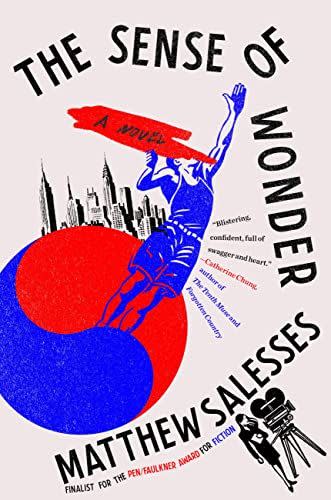
$25.49
amazon.com
A couple years after that, when my wife was diagnosed with cancer, I spent a lot of time next to her while she was in a lot of pain or sleeping off her pain during chemotherapy treatments. We would take the train up from Busan to Seoul. On the train, she would sleep, then when we got there, she would sleep through chemo. There were days and days where I was just sitting in this very hot ward, because cancer patients get really cold, around all of this life and death, and I thought, “I should probably do something with this time.” I had written the first half of that novel and I thought I would add the bits in between. But when I reread it, I thought, "The in-between doesn’t seem interesting.” So I figured I would just write another beginning, middle, and end of a novel, and then put them together. That’s where Carrie Kang entered the book. The K-dramas in the book were ideas I had for K-dramas that I thought would be good shows, but I can't write in Korean and I have no connection to the industry. Through a lot of revision, I figured out how Won and Carrie’s stories fit together. Over time, I had a novel.
Speaking of Jeremy Lin, to what degree was this story inspired by his experience?
I borrowed the facts of what happened, but of course, I didn't really know what it was like to be Jeremy Lin. I watched the documentaries and tried to do as much research as I could, but I didn't want to tell Lin's story. I knew from the beginning that it was going to be something different, with my own imagining of what it might feel like to be put in that position.
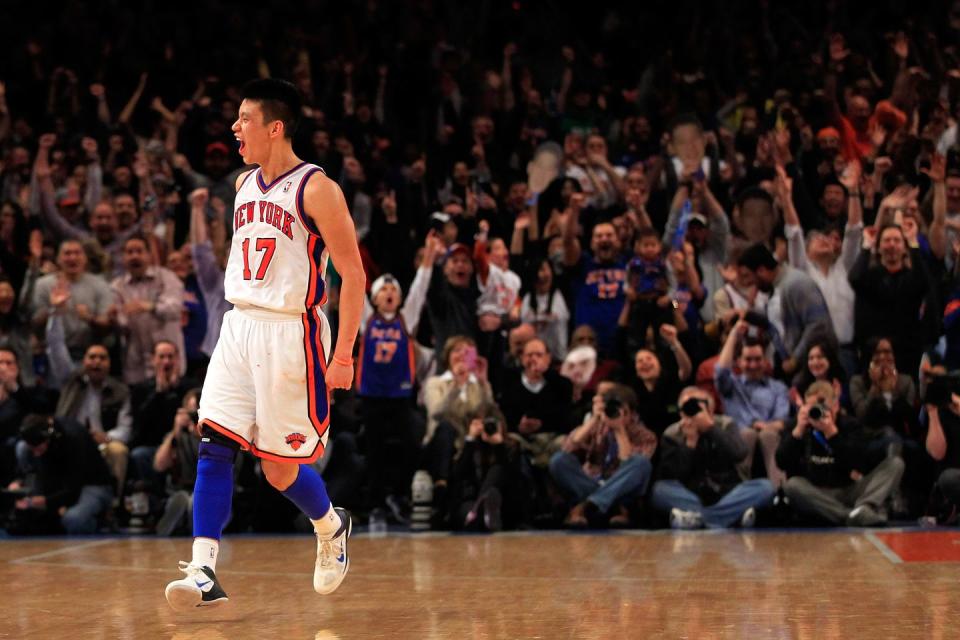
If Jeremy Lin was entering his rookie year in 2023, do you think he would face the same challenges he did back then?
I think he probably would. I've heard from other people that he served as a model for young Asian American players who now have somebody to look up to. But you have to think of it two ways, right? One is: if he were doing that now, then he would have no models, because he's still the only one. Or, if we were to think that a Jeremy Lin type enters the league now, with Jeremy Lin as a model, there still hasn’t been much progress. That model wasn't accepted the way people hoped it would be, and it seemed to be a real problem for his career. It limited his playing time, how people saw him, and what they expected him to be versus what he could actually do well. I felt like he never got the same system in which he could flourish as he had in the beginning. In the end, I doubt that much has changed.
When and how did you become a basketball fan?
I’ve been a fan all my life. I'm actually less of a fan now; I used to be a super fan. I grew up in a college town where the University of Connecticut is located. Basketball was the main sport, and we had season tickets to the women's games the season before they went undefeated for the first time. Then I went to college at UNC Chapel Hill, another big basketball school. I played basketball all through high school and then pick-up games through college and afterwards. It was a large part of my life, and it was also something I wished I could do. If you had asked me at ten years old what I wanted to be, I would have said an NBA basketball player. But life is not always as wonderful as your dreams.
Who do you root for these days?
I was a Celtics fan. I grew up on the side of Connecticut that was the Boston side. But nowadays, I just watch for the drama. I like the off-season stories and the personalities. It's become a very different league than when I was a kid.
How so?
The players have a lot more agency now and they know it, so they're often directing the way that teams are built. There's a lot of movement. When I was a kid, a lot of value was placed on a player who just stayed put and locked into a team built around them. Now players move around, try to find each other, and look for teammates who they can play well with. As a result, you get these super teams. It also creates a lot of interesting stories around where people will go, and whether they'll be able to achieve what they hope to achieve through their new arrangements.
Something that really struck me about the book was the intensity of the connections between Won, Powerball, and Robert Sung. Those relationships are so full of jealousy, competition, anger, and a peculiar understanding. They seem like relationships that could only be formed on or around a basketball court. How do you think sports influences the bonds we form?
Sports are that rare, weird place where men are allowed to be emotional and vulnerable. That opens these relationships to a different kind of intensity—an intensity that men don’t have or would be embarrassed by in other parts of their lives. At the beginning, I was thinking a lot about the relationships that form in high school, and how intense those male friendships can be. At least in my experience, they tend to be very, very fraught.
As recently as the early 2000s, players from different continents were mocked and described as weak, but now the NBA is turning itself inside out to draft a French player, Victor Wembanyama. Do you think the NBA is truly, finally globalized?
No. I think it's still pretty much about American soft power, and even the interest in global players is a return on the investment of American soft power. It's like we've spread the influence and now the teams are trying to capitalize on that influence. Maybe it started with Michael Jordan and the Dream Team. But I do think the game is getting more global, and the way it's played is getting a lot more globalized.
The international game is a lot different from the American game. If you watch a lot of of basketball documentaries, like I do, you see how early on in international competitions after the Dream Team, it was hard for American players to adjust to the international game. One of the things they did was hire a dedicated team that would train them to compete in the way that other teams were competing. That’s helped open up the game to the pacing and style of play that we see now, which is more open with more passing and more three-point shooting. The game has changed, for better or for worse.
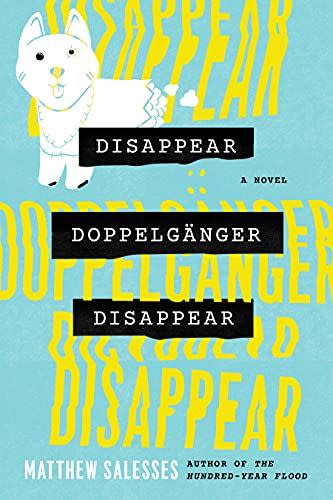
$8.82
amazon.com
You write, "The only articles about the signing implied that my role on the team was to sell jerseys to New York Asians. I represented a new market." I found that to be such a pointed insight. When it comes to money, we see the Knicks undervalue and low-ball Won at every turn. The team sees an opportunity to make money off of him, but they won't spend a lot of money to keep him. What have you observed about how the NBA treats players of color, from a commercial standpoint?
Part of the reason why players have taken a more active role is because they've realized that they have to play business in order to have the kind of power they deserve. Because of the power structure inherent in pro basketball, there's always a strange power dynamic with very white ownership. Coaches and managers are still much more white than the players are, which must be difficult to navigate. I think all of those power dynamics are really interesting, and that's part of why I wanted to write about that world. It's like a microcosm of the world at large, where sometimes certain players have much more power in the NBA than they might have in the world at large, yet the power of money and race is so much on the surface.
The second dimension of this novel is Carrie’s world of K-dramas. The novel does a lot to familiarize us with those stories. What are some of your favorite K-drama tropes?
A lot of them are the ones you see in the novel. I like the fated love trope where they have to repeat their fates multiple times. It just appeals to me as an adoptee. I think it's a second chance at a life. I like very romantic K-dramas, so a lot of the romantic tropes really appeal to me. I find myself enjoying some of the body-swapping and gender-bending tropes, too. I like knowing that they're playing with certain expectations—they’re trying to fulfill expectations, but also make the tropes new.
There's something very metafictional about how you've spliced all of that together in this novel. To what degree did you want the main story to be not just influenced by those tropes, but to become something of a K-drama itself?
I wanted it to land somewhere in between. I put the K-dramas in to guide the reader through understanding how that kind of story worked, so that they would hopefully better appreciate the story I was trying to tell. At first, it wasn't really conscious. I was just writing about K-dramas and then it filtered into the text. But when I'm watching K-dramas, I often find that they seem a lot more true to life than American TV. In American TV, people have a lot of agency, while in K-drama, things are fated or there are expected coincidences. That seems more like how life works to me.
Reading Carrie and Won, I felt the way I feel when I watch a great romantic comedy. I want the best for them, individually and together, and I want them to figure their shit out and live happily ever after. What about their romance and their dynamic was so captivating for you?
Won is supposed to be a model for other people, but he himself had no models. He’s young, just 24 or 25, and he isn’t ready for all the things that happen to him—as if anybody could be ready. Carrie is older and wiser about how the world works, and also more self-aware. I wanted to explore those two different avenues, but also have them learn from each other. One of the things I like about K-drama is that the leads are total opposites—each person has a little of what the other one needs. One's very inflexible and they need flexibility, while the other person is total chaos and needs a little order. For me, Carrie and Won were a good pair because they could both gain something from each other that they didn't have on their own.
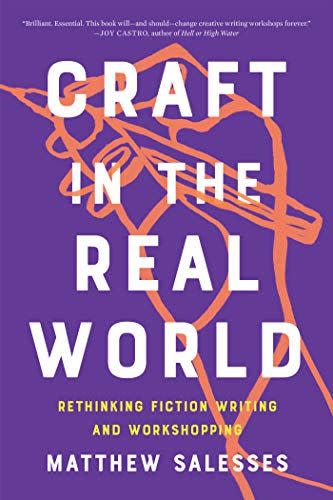
$16.95
amazon.com
Over the past few years, there's been such an explosion of American interest in Korean storytelling. Carrie encounters poor treatment from studio executives when she tries to bridge those cultures. How do you foresee this mashup of K-drama and American media continuing in the coming years?
Right now, it's a spectacle. If you think about the K-dramas that were big hits, like Squid Game, they're very spectacle-based. I have hope that maybe there will be more borrowing of the form, but change takes a lot of time. Right now, it does seem that K-drama is viewed as something very different from American TV, and that's part of its charm and appeal. Like Carrie, my dream is to see more Korean-American drama.
The Sense of Wonder is a great example of how the things we love, whether it's basketball or K-drama or “is it cake” videos, can be the stuff of fiction, full of passion and drama and metaphor. As a teacher of writing, do you advise your students to follow what they love and make a book out of it?
I try to push them toward that way and help them follow their interests. I talk a lot about following our interests, but I see a lot of students come in thinking that they have to deny the things they love in order to be accepted as “literary.” Maybe now, more are doing what they want to do than in previous years. Really, I started this book thinking, "I'm just going to write about these things that I like, basketball and K-drama, so that I can call the things I'm doing on a regular basis research and nobody can say it's not."
You Might Also Like

